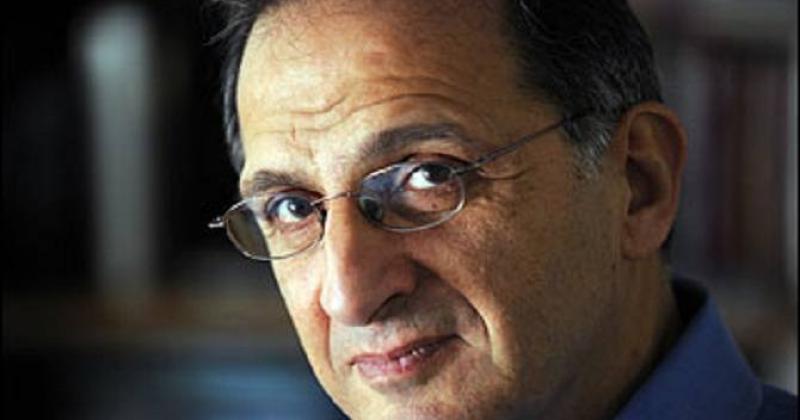For decades, the Christians in the Middle East remained "the invisible or neglected victims" throughout the region, and in best cases the United States only made humble interest in indigenous Christians who lived in the Middle East for centuries whether in Palestine, Syria, Iraq or Egypt. They currently suffer from problems and threats that force them in most cases to pack their bags and leave home. This indifference towards Christian Arabs is attributed to a basic reason in the ignorance of their existence at all, or their living conditions in the region and their contribution to the development of their communities.
Most Americans do not know much about the Arab world, its history and peoples, which must be corrected as long as the continued ignorance of the important role played by Christians in the development of their communities prevents opening a deep and rational debate about their past in the region, or even their present and their future.
Perhaps one of the examples of the ignorance of Americans about the Christians in the Middle East is the incident that took place years ago and I recall today, where I hosted a Palestinian priest in Washington and organised in his honour a banquet attended by a number of journalists. And as I limited the invitation to editors of religious affairs, I thought that they were aware of the existence of Arab Christians and their history in the region.
But as the questions began, I realised the opposite and was made sure that from the views expressed by the Associated Press' religious affairs editor that the press meeting would otherwise be other than I wished, rather futile. The editor made an enquiry which unveiled his stark ignorance: "You say that you are a Christian Arab, how do these two labels meet?" Then followed another worse question: "When did your family embrace Christianity?"
But despite the meaningless questions, the pastor maintained calm without showing any disturbance by the ignorance of journalists. He answered his question by saying that his family embraced Christianity two thousand years ago since the days of Christ Himself. He expounded the role Christians played and their joint struggle with their Muslim brethren.
Unfortunately, ignorance is not limited to journalists, but also extends to some officials. Two decades ago, an official at the State Department revealed his intention to travel to Syria, and that among the issues on the agenda is the issue of " Assad and the Baath's persecution of Christians". I hastily warned him not to raise this issue as Christians themselves were among the founders of the Baath Party! Apart from the tyranny of the regime in Syria, Christians view it as advocate for their rights.
I still remember the day I talked to a US official on Syria, and we agreed that the regime of tyranny no longer has a place in Damascus. As I referred to the concerns of Christians, my interlocutor's response was shocking saying that the time has come for them to pack their bags and leave Syria. He said that without the slightest concern about the fate of those whom he advises to leave, or the future of Syria without its Christian fabric. Even when the Christian presence in the Middle East and its numerous problems is recognised, it often misses the political debate--due to its interaction with other political agendas and simplistic perceptions of the situation—which consequently leads to sidelining the Christians. For example, the West remained silent about the evacuation of Palestine from its Christians both in the West Bank or Jerusalem, in order to avoid provoking Israel.
As members of the Christian right in the United States make pilgrimage to the Holy Land to show their support for Israel, the Christian presence in Palestine, including their suffering alongside their fellow Muslims, is completely ignored.
This very point was expressed by a Christian clergyman in Palestine who said that they come to see the road which Jesus walked, but they do not feel our suffering as they consider us present there in the first place.
We cannot forget also some fatal US errors which aggravated the situation for the Christians of the Middle East--such as Bush's bad military adventure in Iraq which destroyed the social fabric and led to unleashing a hell of extremism and sectarianism that almost destroyed completely the old Christian community of Iraq, where the US either ignored, or played down the Christians' tragedy of Iraq considering it inevitable and a price to be paid to achieve the US political agenda and the overthrow of Saddam.
Even when US parties adopt the issue of Christians in the Middle East, it often stems from political considerations intended to score points against a political opponent, as to say that the Republicans would employ it to attack the Democratic administration, or to exploit it to distort the image of Islam. That is why these sides dare not criticise Israel and its maltreatment of the Christians in Jerusalem and Bethlehem nor do they address the situation of Christians in Iraq whose deterioration was caused by the US itself.
In this context, it is imperative not to replace the distortion of the image of Islam with the ignorance on Christians' history in the Middle East, and not to seek to confuse the two. The attack on Islam is not the best suited way to do justice to Christians because it involves great unfairness against the Muslim majority who lived for centuries with Christians, worked with them and whose children struggle today to protect their Christian neighbours and friends from violence and extremism.
